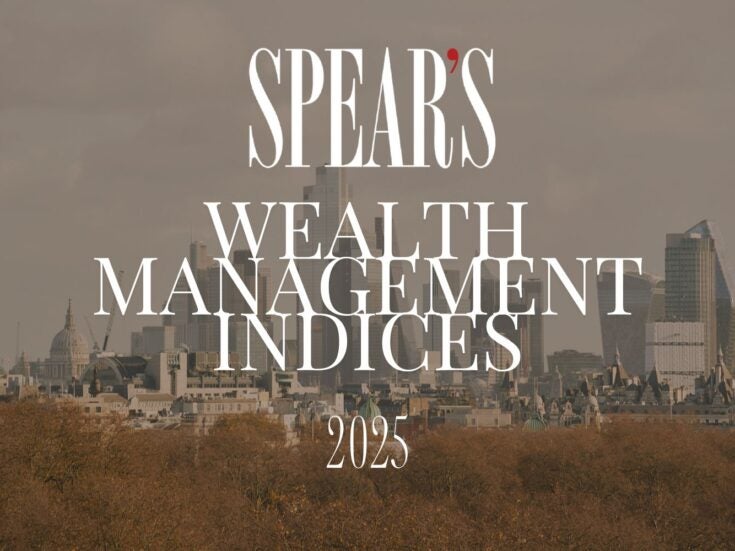
Unexplained wealth orders are new civil investigatory tools granted by the High Court and have the potential to be wide-reaching, writes Andrew Fremlin-Key
The National Crime Agency (the NCA) announced last week that it has successfully obtained the first two Unexplained Wealth Orders (UWOs) against assets reported to be owned by an Asian politician. This means that the NCA has frozen and can now investigate assets totalling £22 million; reportedly a house and offices in London and the South East. The interim freezing orders ensure that the properties cannot be sold, transferred or dissipated until the investigation is concluded.
Although UWOs only came into force on 31 January 2018 under the Criminal Finances Act 2017, the speed with which the first two have been used is perhaps unsurprising given the comments of Minister of State for Security Ben Wallace: ‘Unexplained wealth orders can be used against everyone from a local drug trafficker to an international oligarch or overseas criminal… We are going to go after these iconic individuals, whether they are known about in their local community or known about internationally.’
Authorities including HMRC, the NCA and the Serious Fraud Office can apply to the High Court for a UWO in relation to any asset with a value over £50,000, where the known lawfully obtained income of the person in question (the Respondent) would be insufficient to obtain it.
This £50,000 can consist of aggregated assets (where the UWO covers more than one asset) and crucially, it is the value of the asset, not the Respondent’s interest in the asset, which must be above this threshold. The Respondent must then explain: the nature and extent of their interest in the property; how they obtained their interest (including how they funded its costs); and any other information specified in the UWO.
How can I protect myself?
The answer to this is far from straightforward at this early stage, but clearly legal advice should be sought as soon as you are aware that a UWO is a possibility, and serious thought should be given to minimising the reputational damage of an investigation. UWOs are potentially broad in scope and there are a few key points which you and your legal team should be looking at.
First, if the UWO is obtained with notice to the Respondent, the evidence put forward by the authority should be examined in detail. What evidence is the authority using to support the assertion that the Respondent’s lawfully obtained income would be insufficient to allow the respondent to obtain the property? What are the sources of the evidence and are they reliable? Is there scope to proactively engage and negotiate with the authority to avoid the imposition of the UWO (e.g. through the use of appropriate undertakings)?
Second, if the UWO is obtained without notice, the responsibility is on the authority to make full and frank disclosure to the court. This means disclosing all matters that are ‘material’ to the court’s decision of whether to grant the UWO. This includes matters of fact, law and anything which is adverse to the authority’s case.
Furthermore, this duty not only covers facts known by the authority, but also those which it would have known had proper enquiries been made. Not complying with any of these requirements will leave grounds for potential challenges to the UWO.
Third, the behaviour of the authority should be scrutinised to ensure that the use of the UWO does not constitute a disproportionate interference with the Respondent’s human rights, including his/her right to privacy and/or family life (as guaranteed under Article 8 of the European Court of Human Rights (ECHR) or the Respondent’s right to a fair trial (Article 6 ECHR). There may also be potential problems for the authority if the rights of other individuals are unjustifiably interfered with (e.g. the Respondent’s spouse or children).
Gathering information through an UWO, a civil investigatory tool, is more straightforward than obtaining disclosure through a criminal investigation. It is conceivable that judges will be more receptive to challenges against UWOs and the conduct of the authority.
Next steps
The NCA has clearly set down a marker with the swift imposition of these first two UWOs, and Parliamentary discussions reveal that the government expected enforcement authorities to start off with some marquee cases. It remains to be seen if they will keep up the momentum, and if indeed they have the resources to pursue a flood of UWOs. What’s clear is that they have the potential to be wide-reaching, far beyond the sensationalised links to McMafia and nefarious billionaire oligarchs, and that they should be taken very seriously.
Andrew Fremlin-Key is an Associate in Withers’ Dispute Resolution team
Related article
High Court grants first unexplained wealth orders







